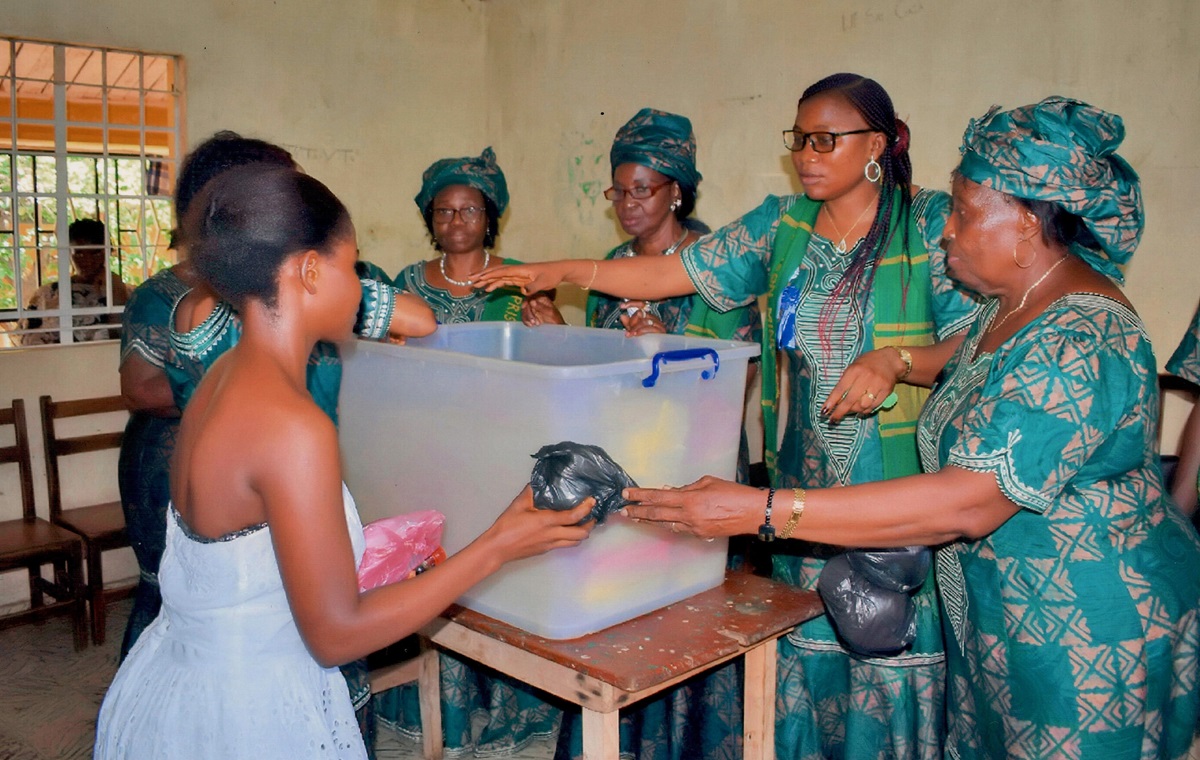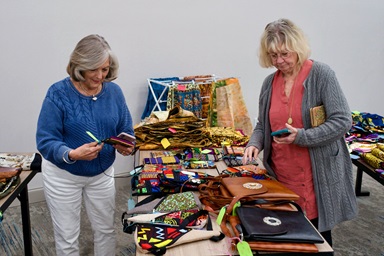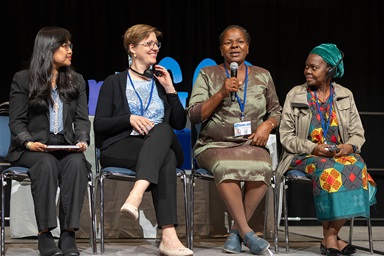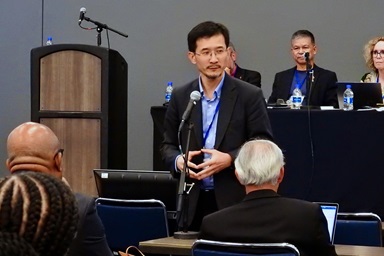The detainees at Kingtom Remand Home — boys and girls, mostly in their teens — slowly settle into the hall as a few scramble for the front row.
It is June 16, the Day of the African Child. The atmosphere is warm as the visiting United Methodist prison ministry team reveals some items it has brought. Socks, caps and packaged meals are marched into the hall and an appetite-provoking aroma fills the air.
The children are excited. It feels like a celebration.
However, Elmira Sellu, United Methodist Women regional missionary, reminds the room about the origins of the Day of the African Child.
She asks the crowd how the international celebration came to be. Someone gets the answer right and is awarded Le10, 000 ($1.20 USD).
“Don’t forget, I’ll be back here again next year with the same quiz,” she says, as she watches their faces light up.
Sellu talks more about the children’s uprising in South Africa on June 16, 1976, when nearly 10,000 black students from Soweto, South Africa, took to the streets to demand a better education and protest the Black Education Act, which segregated students based on race.
Before the day was over, security forces shot hundreds of students, Sellu says. In the weeks of protests that followed, referred to as the Soweto Uprising, more than 100 students were killed and thousands were injured.
The Day of the African Child, which has been celebrated since 1991, honors those killed and recognizes the courage of those who marched. It also is an opportunity to raise awareness about the ongoing need to improve education for children across Africa.
It’s a need that still very much exists today, Sellu says, noting that the celebration’s theme this year is “Humanitarian Action in Africa.”
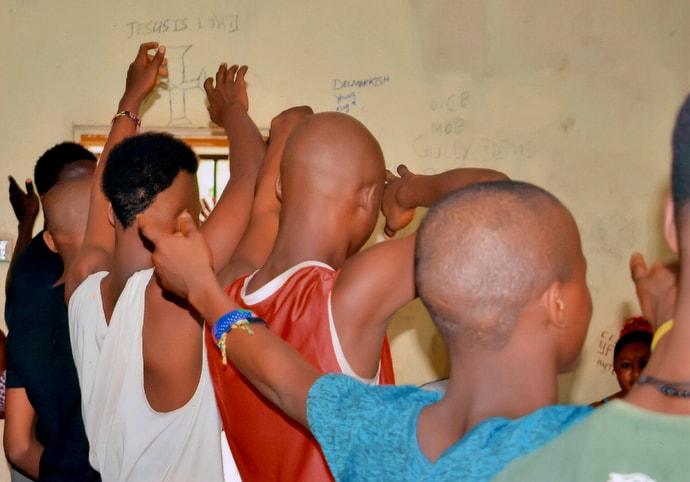
During her visit to the Kingtom facility for juvenile offenders, Sellu assures the young people of Christ’s love. She prays that by the time they leave the remand home, they will have accepted Christ as their Lord and personal savior and will “go and be good boys and girls.” A thunderous “Amen!” echoes across the room.
She prays that by June 16 next year, all of those in attendance will have left the remand home. The group responds with another deafening “Amen!”
Someone from the crowd speaks up and says he wants to be a pastor after his incarceration.
The Sierra Leone Conference prison ministry is funded by the United Methodist Women’s regional initiative represented by Sellu and fellow UMW regional missionary Finda Quiwa.
Quiwa tells the children that their lives are not yet lost and there is hope for them.
“Every time I come here, I see potential ministers, presidents and future leaders. Let me remind you to keep the spirit that will graduate you into the potential that you are. Your future out there still awaits you; work towards it,” she says.
She encourages the young people to work on their character so that it may lead to their release.
“We want to hear good news about you that will make us happy,” Quiwa says.
David Conteh, officer in charge of the remand home, says the June 16 remembrance is a good time to talk about justice issues that affect disadvantaged children. He says some state laws make very little distinction between adult and juvenile crimes.
There are 61 juveniles — 59 boys and 2 girls, all under the age of 18 — at the remand home.
“The increase in the number of the children in remand does not necessarily mean an increase in crime rate,” Conteh explains.
He says it is a problem with the judicial system delaying cases in the courts.
“There are children here who have spent more than two years without getting justice. There are even those who, by virtue of their rights, are not supposed to be here any longer,” he says, referencing the Child Rights Act of 2007, which stipulates that children below age 14 should not be at the remand home.
The church, he says, can play a role in advocating for changes to the law that would address the flaws that heavily punish juveniles.
A 16-year-old at the remand home says he is standing trial in the Sierra Leone High Court for the murder of a friend who died from injuries sustained during a fight over a football game the two were playing.
The last time he was in court was 2016. The teen, who asked to be referred to as John, says he has no idea when his case will be called for hearing. He was in secondary school at the time of the accident and says he is worried that he will never be able to return to school.
“I am happy for what The United Methodist Church did for us today. It shows they have love for us juveniles in detention. Today was one of my happiest days, because it was not just about the food; it was also about transformation in our lives. And that touched me. They spoke to us, prayed with us for a change in our lives,” he says.
Another teen at the remand home is accused of killing the mother of a girl she fought with in 2017. The 17-year-old, who asked to be referred to as Sarah, says the mother was trying to separate the two and fell and hit her head on a stone. She died from her injuries two days later.
Sarah denies that she was the one that pushed the mother, but she was arrested and detained. The case was eventually transferred to the Sierra Leone High Court, where she is currently standing trial.
She says hearing the word of God from the United Methodist prison ministry has transformed her from a temperamental person to “a calm lady,” and she believes she will never be the same person again after her life in remand.
“We are happy that people can think of children in this kind of condition. I’m grateful for the United Methodist prison ministry for providing food for us. … They prayed for us to become good people after life in prison.”
Jusu is director of communications for The United Methodist Church in Sierra Leone.
News media contact: Vicki Brown at (615) 742-5470 or newsdesk@umnews.org. To read more United Methodist news, subscribe to the free Daily or Weekly Digests.
Like what you're reading? Support the ministry of UM News! Your support ensures the latest denominational news, dynamic stories and informative articles will continue to connect our global community. Make a tax-deductible donation at ResourceUMC.org/GiveUMCom.

